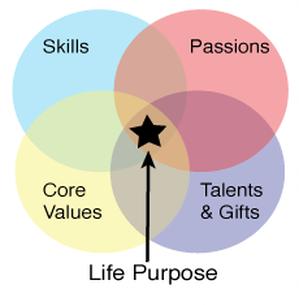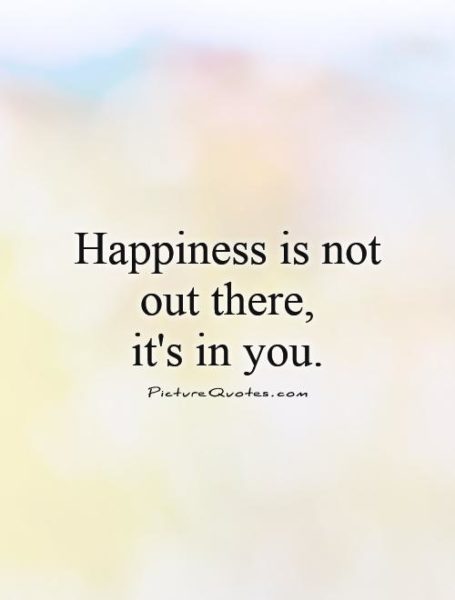I just got through asking Lukas if he and Annika wanted to go out to lunch and heard someone saying, “I don’t” from elsewhere in the house. Only Lukas and I are in the house. Erik? Was that you? You don’t want to go to lunch? Enjoy Part Two on happiness!
Me: Okay, but for some people, it’s hard to find happiness. Maybe they’re being abused by a spouse, for example. Maybe they’re suffering in some way. Maybe they have terminal cancer, etc. How can they find happiness? How can people who are really, really struggling and their life is difficult and painful find happiness?
Erik: Whether it’s physical pain, mental pain, emotional pain, situational, environmental, it is within the simple moments that they’re able to connect with themselves and not to the identity or definition of who they are to others or to the situation [they’re in.] That’s where they can find the joy, the happiness. From that sweet spot is where they should make the decisions about where they should be, how they should feel, how they should find acceptance. A lot of —
(Pause)
Jamie: Hold on. I’m having him repeat it. He’s talking about the path to happiness or joy when we’re looking at the people we’re describing—people who have a difficult life.
Erik: You can navigate that path by using acceptance as a balance. If something is happening in your life and you’re having a difficult time accepting it or you know you don’t want to accept it—let’s say your spouse is abusive—you’re aware that you don’t want it. You don’t want to accept that. If that’s the line you’ve drawn, then you need to change your path. With cancers, things like that, not everybody jumps up and down and yells, “Yay! I’m terminally ill!” So you reach a line where you have to get off that path. You change your focus. You change the way you feel. You change the way you accept it. Even though it’s going to [follow] you, the path is going to be very different whether you look at healing in a different way, whether you surrender to using chemicals instead of going holistic—there are a million different challenges that come with it. Use acceptance. “Can I accept this or not?” to gauge your path to happiness.
Me: Give me one example of how somebody with terminal cancer could find their path to happiness. Would it be about perspective? Is that what you’re saying?
Erik: You could say it’s about perspective. Perspective is how you see the situation so that’s more of a logical experience. Acceptance is more of an emotional experience, how you’re wrapping your heart around the situation. It could be how you have the cancer, and you never, ever wanted to die, like you’re more afraid of death, and then, all of a sudden, you understand that it’s okay if you leave. Life will be okay without you. Your children will be okay without you. You have that acceptance. You have that situated. With this, your chances of healing from the cancer—
Jamie (laughing): You just made that word up!
She mouths off something nonsensical.
Jamie: It increases. We’ll just put it like that. “Perpe tua buja buja.” Whatever.
????
Me: It’s in the spirit dictionary. We need to look it up. I think this was you who said this, Erik, but I’m not sure. “Ignorance is not bliss; acceptance is bliss.” Is that right?
Jamie: We were hanging out and talking to my little guide, Maitland. She’s nine, and she loves these little phrases. She loves saying, “The quality of your question equals the quality of your answer.” Her other one is, “Ignorance is not bliss; awareness is bliss.” The awareness includes the head and the heart. It’s not just perspective or acceptance. It’s all of it. Awareness is bliss!
Me: Awareness is more than acceptance?
Jamie: The way that Maitland describes it is that the awareness of something is the mental clarity and your heart’s clarity on the situation.
Me: And you have to have that in order to be able to have acceptance?
Jamie: No, acceptance is the emotional quality.
A-ha! It’s the heart’s clarity! Does that mean acceptance + perspective = awareness?
Me: All right. Got it. So, along the same lines, a lot of times we can’t be happy because we don’t know if we’re fulfilling our life’s purpose, so my next question is, “Are there any keys to fulfilling one’s life purpose?”
(Long pause)
Jamie (grinning): He’s dangling keys right next to my head, and I hear them, “Ting-a-ling, ting-a-ling.” There are no actual keys. I really wish I could grab him sometimes!
I chuckle.
Jamie starts to talk but interrupts herself.
Jamie: Erik!
Me: Uh oh. What’s he doing now?
Jamie: Key sounds. High pitched key sounds.
Me: Well he hides people’s keys all over the world, thank you very much, Erik! That and sunglasses. They’re your faves.
Jamie: Maybe these are everybody’s keys across the world that he’s jingling for us today.
A spiritual lost and found.
Jamie laughs.
Me: He’s collected a whole bunch.
Jamie: Return them, Erik!
Erik: There are no actual keys to this.
(Long pause)
Jamie: Oh my god. Go ahead and ask the question again. Let’s get our boy on track.
I do.
Erik: Your life purpose is connected to passion. It’s something you can be passionate about. What’s going on in that area of your life, a lot of times your life’s work is not the career that you choose. I think that’s where we get confused. We hear the word, “work,” and it seems obvious that it should be part of our career while your real life’s work could simply be raising your child. It could be being a safe driver.
Oops. Not my life’s work, then.
Erik: It could be something that we might see as a mundane task. It might not seem like something special because many people can do that work, but you have to get crazy simple.
Jamie: Wow, those two things just don’t go together.
Erik: You need to get extremely calm and simple when identifying what your passion is. What do you really care about in this world? If it’s your family, then that’s your life’s work. If it’s protecting the trees and indigenous species, if it’s frogs, if it’s milk—
???
Erik: –whatever it is, then this is what you need to allow yourself to move closer to and start manifesting it in your life. When you do that, then that’s when you know you’ve [found] your life’s (air quotes) work. You’ve engaged your passion into it. Passion just means you like something a lot, a lot, a lot, a lot, a lot, a lot—
Jamie stops and laughs.
Me: Give me an example. Let’s say Joe Blow is working in a cubicle at an insurance company.
Jamie shakes her head. Clearly Erik has said something off-color.
Me: It’s not his life’s purpose. Walk me through a fictitious situation with him.
Erik: Mr. Blow—
Jamie turns red and cracks up.
Me: Oh god. Wrong name.
Why do I keep giving Erik fodder for his Erikness?
Jamie: You did! Wrong name! Because he shows me it written on paper and it says, “Blow, Joe,” and he’s like, “I wish I was Joe.”
Sigh.
Jamie: So an example. Joe was working—god I’m sorry. He’s making me ADD.
I repeat Joe’s circumstances.
Erik: And where’s the passion, right?
Me: Yeah, that’s not his passion, so walk me through a fictitious passion, what questions he should ask and how to arrive at it.
Erik: Okay. Let’s say Joe works at the insurance company, but he’s not really into it. He’s doing it for the money and the security and helping his family, so he kind of feels like he’s selling his soul. That’s his thing. Whatever. But he loves fishing. Holy cow (I’m sure he said, “Holy shit,” but…) the dude loves fishing. So every weekend he does it. Every vacation he includes it. He’s got tackle and all kinds of things. He’s found that using a certain kind of peanut butter on one of the worms works well or this color or this season or this location [is best]—he’s found out all these things for himself so that he could have a better fishing experience. These are the things he can take, whether it’s in a publication, whether it’s teaching, whether it’s giving tours, creating a part time job, sharing his information and experience with people through a blog or publication, a teaching, a lesson—
Is it just me, or is he repeating himself?
Erik: And then once this, let’s say, part time touring and teaching people how to fish—maybe he wants to travel and get exotic with it, and he starts taking people with him.
One coherent sentence, please, Erik, for the love of god.
Erik: Then all of a sudden it becomes this full time fisherman job. It might take time to build up that same kind of security and stability, but he can eventually get there. And what if people feel so insecure that they can’t go 100% into their passion? Well then you create something else. You make your passion more of a hobby thing. Maybe it’s volunteering. Maybe you don’t want money in your passion, and you have your other career that helps you in your daily humanness so that you have the free time to do the volunteer work at the church, in the local community, for The Boys and Girls Club because that’s really what you want to do, and you love it so much that you offer free web design. You offer free email returns.
???
Erik: You offer free retreats for them or you fundraise for them. That’s your passion. You just have to define it for yourself. You have to know what your needs are, where you heart is, how it works in your human life and then make a plan. You can roll this plan out over a few years and get to where you want to be. Ding.
Me: Okay. Anything else on happiness?
Jamie sways back and forth laughing. What has Erik said or done now?
Me: And fulfillment.
Jamie is now beet red.
Jamie: No. You don’t want to know.
Me: Come on, Jamie!
Jamie can’t stop laughing.
Me: All right.
I guess we’ll never know. It must be a really raunchy one. Have a happy weekend, peeps!




